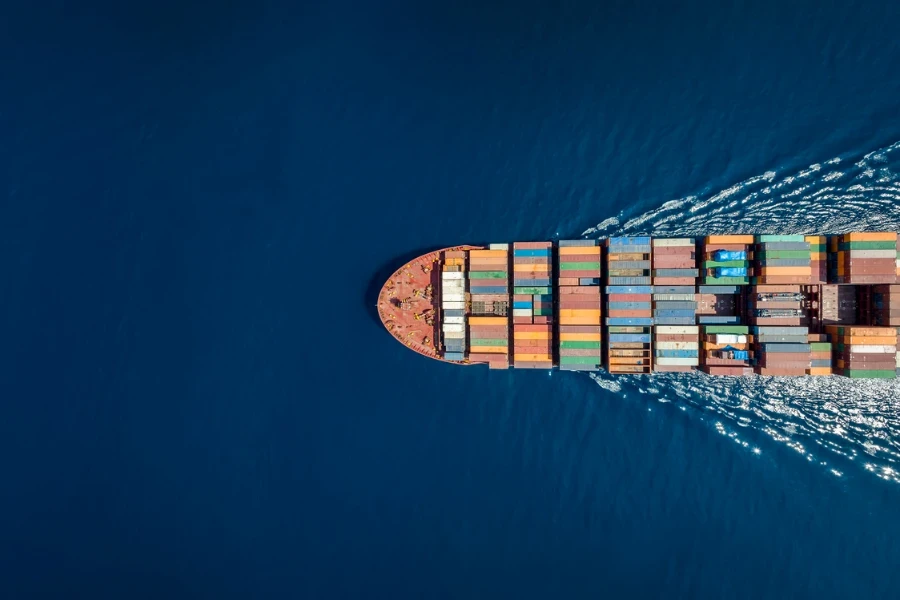As a leading global wholesale marketplace, Alibaba.com connects millions of buyers, suppliers, and wholesalers worldwide. Since its founding 25 years ago, the platform has helped facilitate innumerable business-to-business (B2B) transactions across a vast array of products and industries, from electronics and machinery to apparel and consumer goods.
Aliababa.com’s robust international shipping infrastructure and extensive reach enable businesses of all sizes to source products efficiently and cost-effectively, making it a pivotal player in global trade. Read on to discover how Aliababa.com’s vast shipping networks can be used to grow your business in 2024!
Table of Contents
How does global shipping work on Alibaba.com?
How best to negotiate shipping rates with suppliers
Shipping to specific countries and regions
Why buyers can trust shipping on Alibaba.com
Conclusion
How does global shipping work on Alibaba.com?
Global shipping on Alibaba.com is designed to streamline international trade. Once a buyer places an order, they’ll be presented with various shipping options, including air freight, sea freight, and express courier services. Shipping terms such as FOB (Free on Board) and CIF (Cost, Insurance, and Freight) are commonly used, giving buyers flexibility in choosing how they want their goods shipped.
Alibaba.com collaborates with a network of logistics providers around the world to ensure timely and reliable delivery. Buyers can track their shipments through the platform, and customs clearance is often handled by the shipping providers, simplifying the process for international buyers.
For a comprehensive overview of how to order products on Alibaba.com, click here.
How best to negotiate shipping rates with suppliers

Negotiating shipping rates on Alibaba.com can significantly reduce costs. Start by requesting quotes from multiple suppliers to compare rates, which can be done easily via the platform’s exclusive Request for Quotation (RFQ) feature. Learn everything you need to know here.
To optimize your experience, remember to engage in clear communication, specifying your shipping requirements and volume, as larger orders might qualify for discounts. Also, inquire about any potential hidden costs, such as packaging fees or customs duties.
Building a good relationship with suppliers can also lead to better rates and terms. Utilize Alibaba.com’s messaging tools to maintain transparent and professional dialogue. Remember, suppliers are often willing to negotiate to secure business, so don’t hesitate to discuss terms until a mutually beneficial agreement is reached.
Shipping to specific countries and regions

Now that you have a better idea of how to negotiate favorable shipping terms with suppliers, let’s look at some of the specific countries and regions that the Alibaba.com platform facilitates shipping to, as well as details about their infrastructure.
Keep in mind that while Alibaba.com facilitates the shipping of products around the world, specifics will largely depend on the individual supplier’s shipping policies. Buyers should confirm with the supplier whether they offer direct shipping, or they might even want to explore using third-party freight forwarding services.
Australia: Suppliers shipping to Australia typically offer sea and air freight options. The country’s efficient customs system facilitates smooth import processes.
Canada: Shipping to Canada is streamlined with extensive air and sea routes, but buyers should be aware of potential customs duties and taxes.
United Kingdom: The UK benefits from robust logistics networks. Sea freight to major ports like Felixstowe and air freight to London Heathrow are common.
United States: The US market is well-served by Alibaba.com, with multiple shipping options and established logistics channels, particularly for sea and air freight.
Pakistan, India, Bangladesh: These South Asian countries have burgeoning import markets. Shipping typically involves sea freight through major ports like Karachi, Mumbai, and Chittagong.
Africa: Shipping to African countries can vary. For example, South Africa has well-established ports like Durban, while regions like Ethiopia and Somalia may face longer delivery times due to infrastructure challenges.
Algeria, Morocco: North African nations benefit from proximity to European shipping routes. Tangier in Morocco and Algiers in Algeria are key ports.
China: Domestic shipping within China is highly efficient, leveraging the country’s advanced logistics network.
Dominican Republic: Sea freight is common, with major ports like Santo Domingo facilitating imports.
Ethiopia: Landlocked, Ethiopia relies on Djibouti’s port for sea freight, making shipping times longer.
Iran, Iraq: Shipping can be complex due to geopolitical issues. Engage with suppliers familiar with local regulations to ensure smooth transactions.
Nigeria: Lagos port is a major hub, but buyers should consider potential delays due to port congestion.
Philippines: Manila is the main port, with air freight also being a viable option for faster delivery.
Somalia: Shipping to Somalia can be challenging due to security concerns. Ensure suppliers are experienced with the region.
South Africa: Ports like Durban and Cape Town are well-connected to global shipping routes.
Uganda: Being landlocked, Uganda relies on Mombasa port in Kenya for sea freight.
Vietnam: Ho Chi Minh City and Hanoi are major hubs for receiving goods via sea and air freight.
Zimbabwe: Goods are often routed through South Africa, making Harare the primary receiving point.
Why buyers can trust shipping on Alibaba.com
As a further means of protection and boost to buyer confidence, Alibaba.com offers its own Trade Assurance program, providing buyers with secure ways to pay, protect against unforeseen circumstances such as product or shipping issues, and mediate between buyers and suppliers to resolve any issues related to the purchase. For example, if the goods are not shipped on time or do not meet the agreed-upon standards, buyers can request a refund.
As part of Trade Assurance, the platform also employs a rigorous supplier verification process, ensuring that listed suppliers are credible. Read more about the myriad benefits of Trade Assurance here.
Finally, Alibaba.com vets its logistics partners, ensuring only reputable companies are called upon to provide reliable shipping services at great rates, further ensuring the safe and timely delivery of goods.
Conclusion
With comprehensive shipping options and supportive negotiation practices, Alibaba.com provides a robust platform for facilitating global trade. It connects buyers to suppliers across the world, ensuring great deals and efficient delivery through its expansive logistics network.
Buyers can further maximize and protect their transactions through the free Request for Quotation and stringent Trade Assurance services. Overall, Alibaba.com provides a reliable and hassle-free gateway to international business, catering to diverse markets worldwide.
If you want to know more about the services Alibaba.com can provide you and your business, make sure to subscribe to Alibaba.com Reads.



